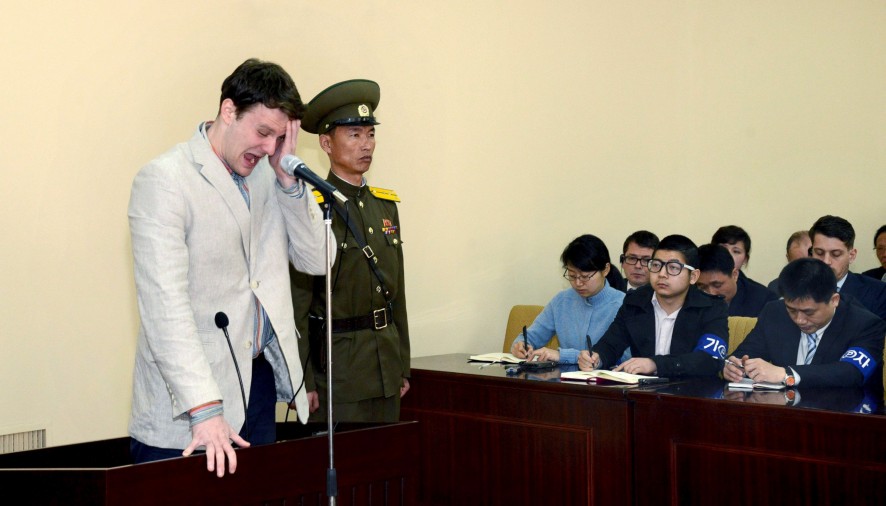Let us get one thing out of the way, here at the start: Otto Warmbier, the US student who stole a propaganda poster from a North Korean hotel, is guilty of the crime with which he has been charged. This is not up for dispute. The simple fact is that he broke the law of the land. What can be called into question is the morality of his actions. What is legal and what is moral are all too often two very different things. There was a time when slavery was legal in Otto’s home country – but there was never a time when it was morally justified. The issues Otto’s case brings to light are, therefore, concerned with the morality of his actions.
It would seem to be the opinion of the majority that Otto deserves to be punished for his ignorance. Certainly, you would be hard pressed to find anyone on social media professing a different view. Otto ought to have known, apparently, that that he was in North Korea, and to have acted accordingly. As the saying goes; when in Rome, do as the Roman’s do. If you want to be pretentious about it, you can call this view Cultural Relativism.
On paper, this seems like a good idea. Few would argue that we are wrong to respect the beliefs and practices of other cultures, just because they differ from our own. In Britain, the popularity of Cultural Relativism is fuelled largely by guilt inherited from our imperialist ancestors. Nevertheless, what is morally right in one culture is not different to what is morally right in another. That it seems otherwise is merely a matter of context. It is never morally justified to kill an innocent person, though different cultures will have different ideas about what constitutes innocence.
The fact is that we celebrate people who oppose the culture in which they find themselves, when they judge that its actions are not morally justified. Think of Martin Luther King in segregation era America and Ghandi in colonial India. Let us return to the case of slavery in the US. We can look back on nineteenth century America and rightly judge its citizens for having let slavery be legal. It is right to judge your own culture, as well as those of the past, against a universal moral standard. Without doing so, there could never be the kind of social progress which separates us from North Korea. How is judging a foreign culture any different?
This is not to say that Ghandi is the same as Otto, since the latter acted out of ignorance. Still, ignorance is not a moral sin. If it were, there would quickly be no room left in hell. At the end of the day, all Otto did was steal a poster from a hotel. Petty theft is a minor sin by anyone’s reckoning, and one we are all guilty of at one time or another. Who can honestly say they have never walked out of a fast food restaurant with a pocket full of sauce sachets? Cultural context does not change anything in this case, since the culture in question is an indefensible totalitarian regime. We can respect other cultures and still judge that Otto’s sentence of fifteen years hard labour is out of all proportion with the moral severity of his crime.
You may think that the case of an American Student stealing a poster is unworthy, in the grand scheme of things, of being so deeply analysed. If so, apply the arguments presented in this article to FGM, honour killings or capital punishment and see if you still feel the same way…
Michael Everritt
Image courtesy of Korean Central News Agency (KCNA)

